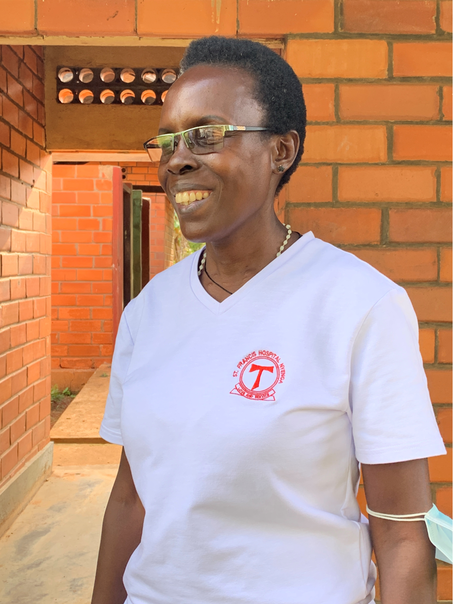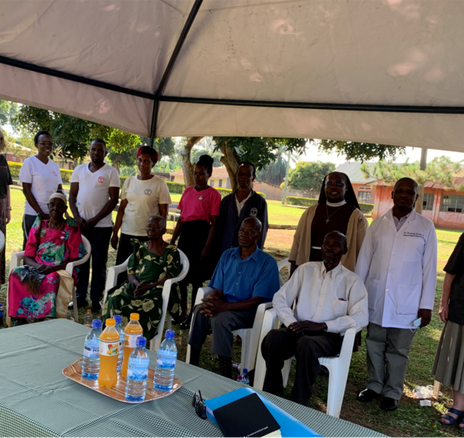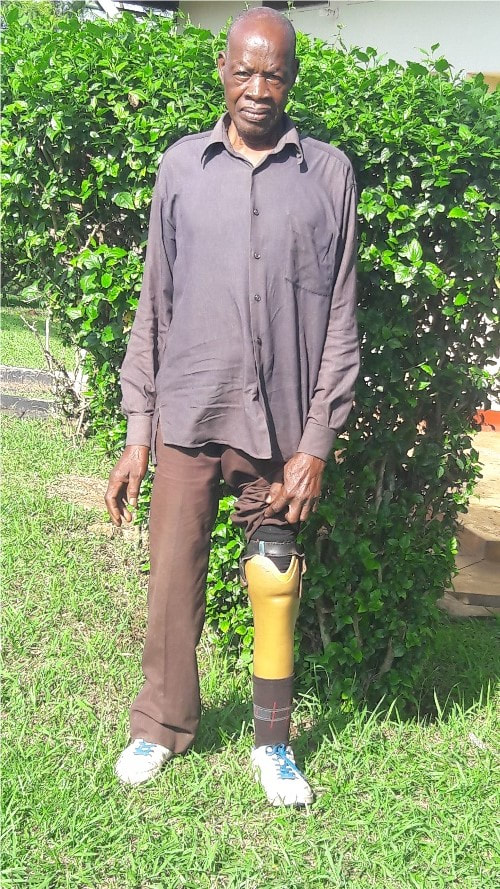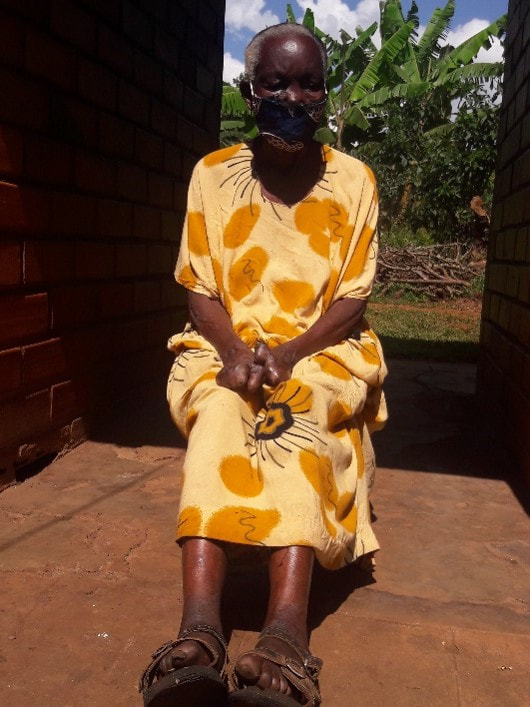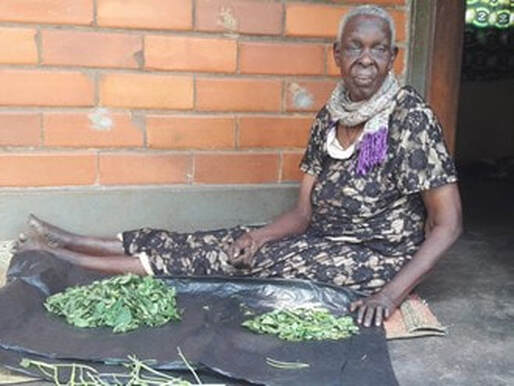St Francis Hospital, Nyenga was founded in 1932 as a leprosy treatment hospital. Often referred to as Nyenga Hospital, it has since expanded to allow other types of patients. The people we spoke to in the case studies below caught leprosy as children. They have needed help and support throughout their whole lives. SFLG has partnered with Nyenga since 1988 so that it can provide all its residents needs.
|
Navid
Navid is a nurse at Nyenga. When she was a child, her mother was affected by leprosy. Navid later felt inspired to work with people with leprosy. She said: My family and neighbours questioned my decision, asking if I was worried about contracting leprosy myself. But I knew that the risk was low and that leprosy can be treated. |
Nyenga has five live-in patients with leprosy. Navid treats them just like her elder family.
|
Martin (aged 67, lives at home)
|
Martin was just 15 years old when he developed a strange, light skin patch on his left hand and arm. He was selling fish to help generate some income for his family, and dreaming of being a businessman. A health worker advised him to get checked at the Nyenga Hospital, where leprosy was later confirmed. Martin feared he'd have to leave school and abandon his business. But he was admitted for a short time for treatment, and then returned home, happy to be cured. He embarked on his gardening and running his small business. He left home in 1986, at the start of Uganda’s brutal civil war, and secured work in the Nyenga Hospital as a cleaner.
In 2000, Martin discovered a wound on his left foot which did not respond to treatment; his lower bones were eventually infected which tragically led to the amputation of his leg in 2004. Nyenga Hospital helped him get a prosthesis to aid his movement. Martin now works in the hospital kitchen to help prepare food for leprosy patients. He says that without the hospital's support, he “would have died”. In the near future, he hopes to leave his hospital job and set up a small shop. |
leprosy is treatable; normal chores can go on even with disability and the general community should include them in general activities or programmes that benefit the entire community – social inclusion.
Elizabeth (aged 79, lives in the hospital)
|
At around 12, Elizabeth developed pigmented patches of skin on her face and back. A local health worker confirmed leprosy and she was then treated weekly via outreach.
Sadly, Elizabeth’s condition showed no improvement, and she was eventually transferred to Nyenga Hospital, after discrimination by her family and community. By this time Elizabeth was 26, and married with five children, who came with her to Nyenga. At Nyenga Hospital she was given specialised treatment, her severe leprosy reactions were managed and she stayed there for almost four years. During this time, tragically, Elizabeth lost her fingers and toes and suffered a facial deformity. In order to secure her and her children’s futures, Nyenga Hospital employed her as a cleaner and to work in the stores, taught her to knit and educated her children. Elizabeth is so grateful, and says that without their support, she “would have died a long time ago”. |
Treatment for leprosy is available and it is free. You can heal with no disabilities if you seek medical treatment early. Health workers have to continue with screening to identify more people. The families and communities should stop discriminating persons affected with leprosy.
Pulkeria (aged 80, lives at the hospital)
|
At only seven years old, Pulkeria noticed patches on her left leg and arm, and loss of feeling in her palms and feet. When Pulkeria’s brother developed similar patches, they and their mother were terrified of attacks from the local community. They fled their home without their father’s knowledge, and trekked a long distance on foot to reach Nyenga Hospital, where her treatment for leprosy started. Pulkeria remains at the compound to this day, where they can provide her basic health and social needs.
After such a terrible ordeal, it is a great comfort to Pulkeria to know that the Nyenga Hospital will always look after her. Pulkeria’s brother was also cured of leprosy at Nyenga. |
The world should treat persons affected with leprosy equally like any other person.

